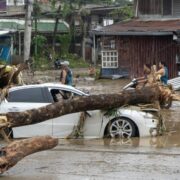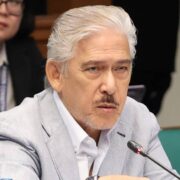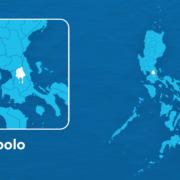Bangon Masbate: The long road to recovery

Walking through the streets of Masbate just two days after Typhoon Bualoi or Opong struck the province last month, I saw my hometown as I had never seen it before: roofless houses, toppled powerlines, fallen trees, damaged schools and public buildings, no electricity, and horrendous traffic because of debris. Everywhere, daily life was halted due to limited access to water, no communication, and little cash to go around. These were not distant headlines. This was the immediate reality of Masbate.
Twenty lives were lost, each one a story unfinished. Nearly 24,000 families affected, and 1,300 classrooms were damaged. The shutdown of power, water, and communications affected everyone. The devastation runs into billions of pesos, and knowing the widespread poverty in Masbate, I have deep concerns for how others would endure.
Yet Masbate did not face the disaster alone. National officials, including the President, visited in the earliest days, offering not just visibility but urgent resources, and the momentum for the local response. National government agencies, especially those in Region V, acted immediately. Provinces near and far including Sorsogon, Albay, Camarines Sur, Camarines Norte, Catanduanes, Iloilo, Quezon, and more, sent crews for relief operations, debris clearing, and the restoration of power and communications.
“Task Force Kapatid,” an initiative rallying power companies from other provinces to assist, was crucial in helping in the faster early recovery of Masbate. Within days, international organizations, the Philippine Red Cross, private companies, and major private foundations joined in supplementing government aid with specialized expertise, urgent resources, and essential supplies and equipment. I feel grateful beyond words.
But equally strong lifelines came from within Masbate. Local leaders, school officials, and business owners moved quickly. Businesses provided food and water, ensured needed supplies, and, despite their own losses, opened for free phone charging, internet, and donations. Teachers, themselves affected, led school cleanups so learning might continue soonest. Some offered meals, others handed out water and meals as volunteers supporting volunteers.
What moved me most was seeing young people step up as leaders. Many of our public officials at the provincial, municipal, and city levels, are themselves idealistic young people. Local and diaspora youth groups from various universities raised urgently needed funds, cooked meals, and distributed relief in their communities. Additionally, high school students cleared debris from their classrooms.
I remember working with the United Architects of the Philippines, as well as the Placer Advocates for Youth in Action Group who are supported by donors and diaspora groups and housed by a business owner and a municipal council member of the town of Placer, at the eastern tip of Masbate island. These actors worked together, packed and distributed food and non-food items, and combined resources to help an affected community. There are many more such efforts and stories of volunteerism after the disaster.
Masbate’s immediate battle for response is closing soon, but the struggle for long-term recovery is only beginning. Recovery and rehabilitation is a less visible and more complicated process that will require intense work on housing, schools, hospitals and health centers, power, water and telecommunication, public buildings, and more importantly, restoring and improving lives and livelihoods.
That’s why it is important that Masbateños remain at the center of the recovery process, with solutions, capacities and the push coming from within. In this long journey, we must:
1. Continue to volunteer: showing the same willingness to help we had from the earliest days of the disaster towards long term solutions
2. Empower, empower, empower: especially children and youth, elderly, neighbors, and current and future leaders, because the task is too great and true recovery depends on the actions of many, not just a few.
3. Build back better, investing in longer term resilience and strengthening our homes and basic services, so another Opong, or worse, will not affect Masbate the same way.
When I left Masbate, most debris were cleared, banks and ATMs were operational, schools were being prepped for classes, phones can receive texts in more places, water flowed again, and lights shone in a few homes. This progress comes from the efforts of so many from inside and outside our province. If you helped Masbate in the first days, there is more to be done. If you have given, your continued support is the key to making our recovery last.
Masbateños are tough as nails—one of the toughest people I know. We will endure, we will recover together, and we will emerge more resilient before the next disaster. Bangon Masbate.
—————–
Irwin is a disaster risk management professional who has served with various international agencies in New York, Geneva, Istanbul, Jakarta, Rome, Kabul, Quito, Bangkok, Manila, Tacloban, and Ormoc.

















Nobel Peace Prize: Sponsored by the powerful